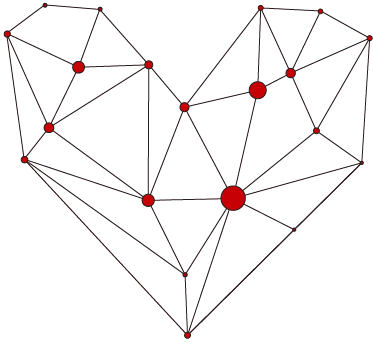| Field Name | Field Description |
|---|---|
| EDDC_PROJECT_RECNUM | The unique identifier for the EDDC episode |
| FACILITY_IDENTIFIER | The specific emergency department reporting the episode of care. |
| REFERRED_TO_ON_DEPARTURE_RECODE | Referred to at the end of the Emergency Department Contact. |
| ARRIVAL_DATE | Date at which the person presents for the service |
| ARRIVAL_TIME | Time at which the person presents for the service |
| ACTUAL_DEPARTURE_DATE | For the admitted patient this refers to the date the person is either 1) transferred to a ward or other unit or 2) leaves the ED for transfer to another unit. For non-admitted patients this refers to the date at which the assessment and initial treatment is completed and/or they physically leave the department |
| ACTUAL_DEPARTURE_TIME | For the admitted patient this refers to the time the person is either 1) transferred to a ward or other unit or 2) leaves the ED for transfer to another unit. For non-admitted patients this refers to the time at which the assessment and initial treatment is completed and/or they physically leave the department |
| AREA_IDENTIFIER | Local Health District (LHD) of facility |
| ED_DIAGNOSIS_CODE | The diagnosis or condition established after assessment to be responsible for the person presenting to the Emergency Department. If the person is admitted as an inpatient it is the equivalent of the admission diagnosis. For Cerner FirstNet sites, this variable is captured as “Discharge Diagnosis”. For EDIS and iPM sites it is known as “Principal Diagnosis” |
| CLINICAL_CODESET | An identifier to identify the classification scheme a principal diagnosis has been mapped to. |
| ED_DIAGNOSIS_CODE_SCT | The diagnosis or condition established after assessment to be responsible for the person presenting to the Emergency Department. If the person is admitted as an inpatient it is the equivalent of the admission diagnosis. For Cerner FirstNet sites, this variable is captured as “Discharge Diagnosis”. For EDIS and iPM sites it is known as “Principal Diagnosis” |
| ED_SOURCE_OF_REFERRAL | Source from which the person was referred to this service |
| ED_VISIT_TYPE | The reason the person presents to the Emergency Department |
| FACILITY_TYPE | The category of the facility through which the health service is delivered. |
| MODE_OF_ARRIVAL | Mode of transport by which the person arrives |
| MODE_OF_SEPARATION | The status of the person at separation from the Emergency Department |
| PEER_GROUP | Facility peer grouping (Public Hospitals only). For more information please see: https://www1.health.nsw.gov.au/pds/Pages/doc.aspx?dn=IB2016_013 |
| TRIAGE_CATEGORY | Triage is the process used to classify patients according to the urgency of their needs for medical and nursing care |
| PPN | The unique identifier for the patient provided by the Centre for Health Record Linkage (CHeReL) |
| DICTERROR_FACILITY_IDENTIFIER | Flag that indicates if there is an out-of-dictionary error in the facility_identifier field for this episode |
| DICTERROR_REFERRED_TO_ON_DEPARTURE | Flag that indicates if there is an out-of-dictionary error in the referred_to_on_departure field for this episode |
| DICTERROR_AREA_IDENTIFIER | Flag that indicates if there is an out-of-dictionary error in the area_identifier field for this episode |
| DICTERROR_ED_SOURCE_OF_REFERRAL | Flag that indicates if there is an out-of-dictionary error in the ed_source_of_referral field for this episode |
| DICTERROR_ED_VISIT_TYPE | Flag that indicates if there is an out-of-dictionary error in the ed_visit_type field for this episode |
| DICTERROR_FACILITY_TYPE | Flag that indicates if there is an out-of-dictionary error in the facility_type field for this episode |
| DICTERROR_MODE_OF_ARRIVAL | Flag that indicates if there is an out-of-dictionary error in the mode_of_arrival field for this episode |
| DICTERROR_MODE_OF_SEPARATION | Flag that indicates if there is an out-of-dictionary error in the mode_of_separation field for this episode |
| DICTERROR_TRIAGE_CATEGORY | Flag that indicates if there is an out-of-dictionary error in the triage_category field for this episode |
‹ Back
